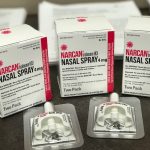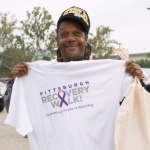When it comes to providing treatment with buprenorphine, primary care providers fear an onslaught.
Eliciting Change Talk: Infusing Motivational Interviewing with Intentionality
With the right training and experience, clinicians can help patients become more aware of their thoughts and goals. Motivational Interviewing is a therapeutic model that helps clients explore and resolve ambivalence.
Migrating To Recovery-Oriented Methadone Maintenance
IRETA was fortunate to be chosen to work with Foundations Medical Services, a methadone maintenance program in Butler, PA managed by Pyramid Healthcare, Inc.
Americans Need Naloxone and Pharmacists Shouldn’t Hesitate to Give It to Them
Every generation struggles with their own set of public health issues. Our generation is faced with the opioid epidemic–which has been brewing for over 20 years. Let’s dispelling misconceptions about liability risk associated with dispensing naloxone.
Warmest Wishes on a Cold, Cold Day
we do it to send warm wishes to all of our supporters–to you! It’s a privilege to be connected to so many terrific people who care about improving individual and system-level responses to addiction.
Referral Can’t Be the Only Solution: SBIRT for People with Alcohol Use Disorders
Addressing the public health consequences of alcohol use disorder means doing more work in primary care.
Because of IRETA, There are More Doctors in the World with Unusual Knowledge and Skill
IRETA’s 2017 Annual Report summarizes the effectiveness of our longstanding medical student program.
Let’s Say You Run a Mayoral Campaign Focused Solely on Addiction. You Win. Then What?
When Kelley Kelley took office as the mayor of Turtle Creek, she’d promised the community that she would do a better job addressing addiction and its harms.
What It Means When People Show Up For Recovery
Each person who showed up for recovery sent the message that “Hey, a person who looks like me is affected by this, too!”
It Works! Annual Summer Program Changes Medical Students’ Views of Addiction
Peer-reviewed evaluation results indicate that students feel more responsible and motivated to help people with substance use disorders















